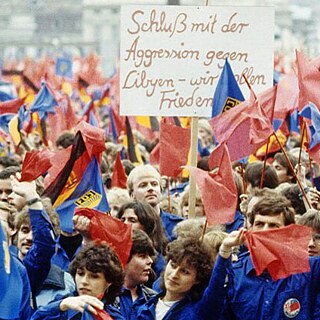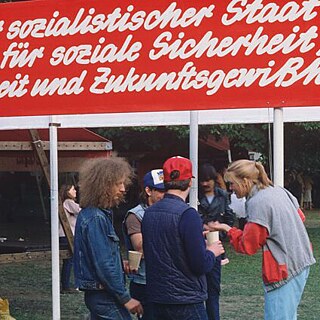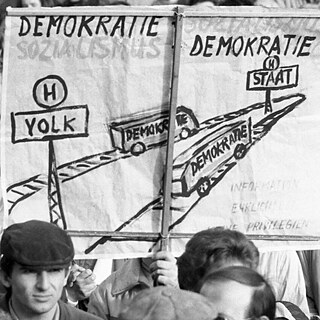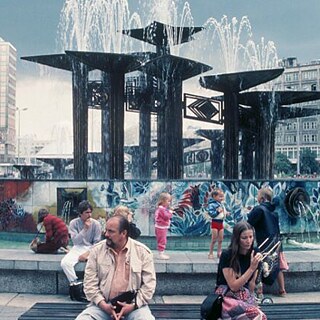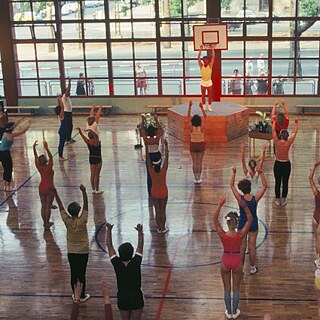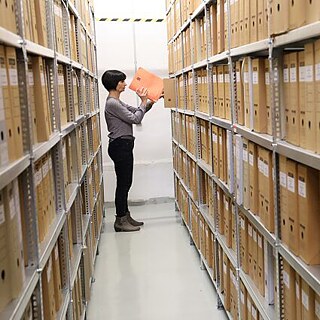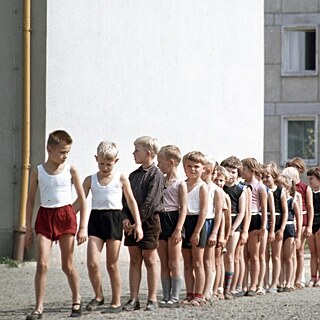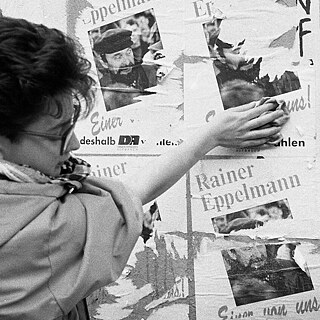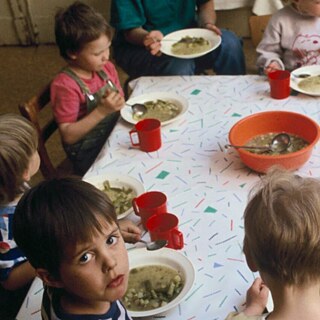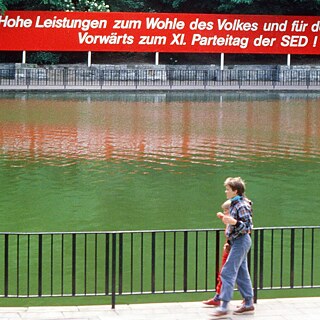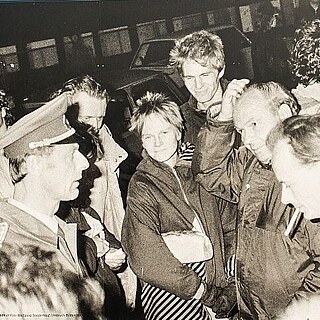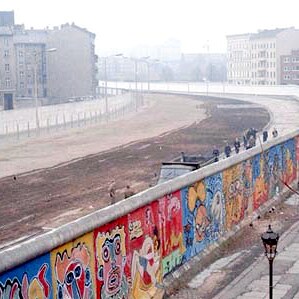
Show description in:
Chapter 7Do walls work?
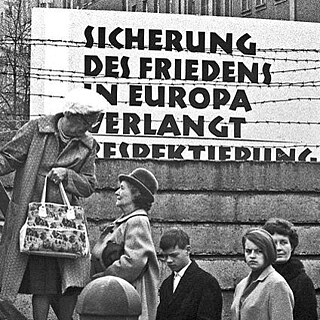
A few years ago, most people considered walls and militarized borders as things of the past.
Characteristics
Language level
Target group
Skill

Part of the series Divided Germany, the wall and reunification
26 materials
Description
A few years ago, most people considered walls and militarized borders as things of the past. Today, the idea is back. Yet, as we look back at historical example of walls and most prominently the history of the Berlin Wall and divided Germany, the past has a few lessons to offer. We can ask how the Berlin Wall was supposed to work, what it meant for the people living with it, and if it fulfilled its task in the first place. With a specific interest in how people in the East and the West responded to the Berlin Wall, this lecture will look back at divided Germany, the short and long term consequences of the fortification of its internal border, and the question of human rights.
Frank Wolff, PhD, teaches Modern History and Migration Studies at Osnabrück University, Germany. An award-winning author and a public media expert on migration and German history, his books include the transnational history of the Jewish Labor Bund and “Die Mauergesellschaft”, a study of migration and the border in divided Germany (Suhrkamp 2019). In 2021 he will visit Bard College Berlin as a Visiting Lecturer on Racism and Antisemitism Studies. Currently he is finishing a book on homosexuality in Postwar Germany and is working on an intellectual history of “borders.”
Frank Wolff, PhD, teaches Modern History and Migration Studies at Osnabrück University, Germany. An award-winning author and a public media expert on migration and German history, his books include the transnational history of the Jewish Labor Bund and “Die Mauergesellschaft”, a study of migration and the border in divided Germany (Suhrkamp 2019). In 2021 he will visit Bard College Berlin as a Visiting Lecturer on Racism and Antisemitism Studies. Currently he is finishing a book on homosexuality in Postwar Germany and is working on an intellectual history of “borders.”




